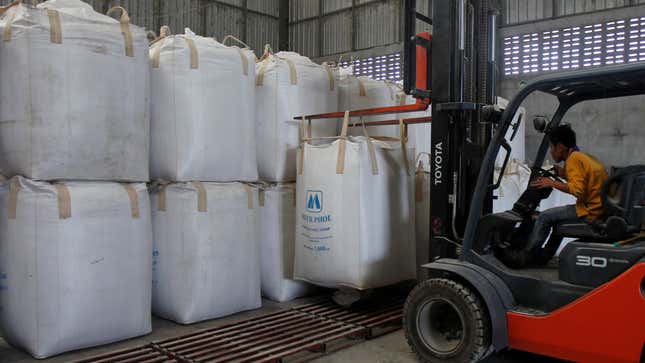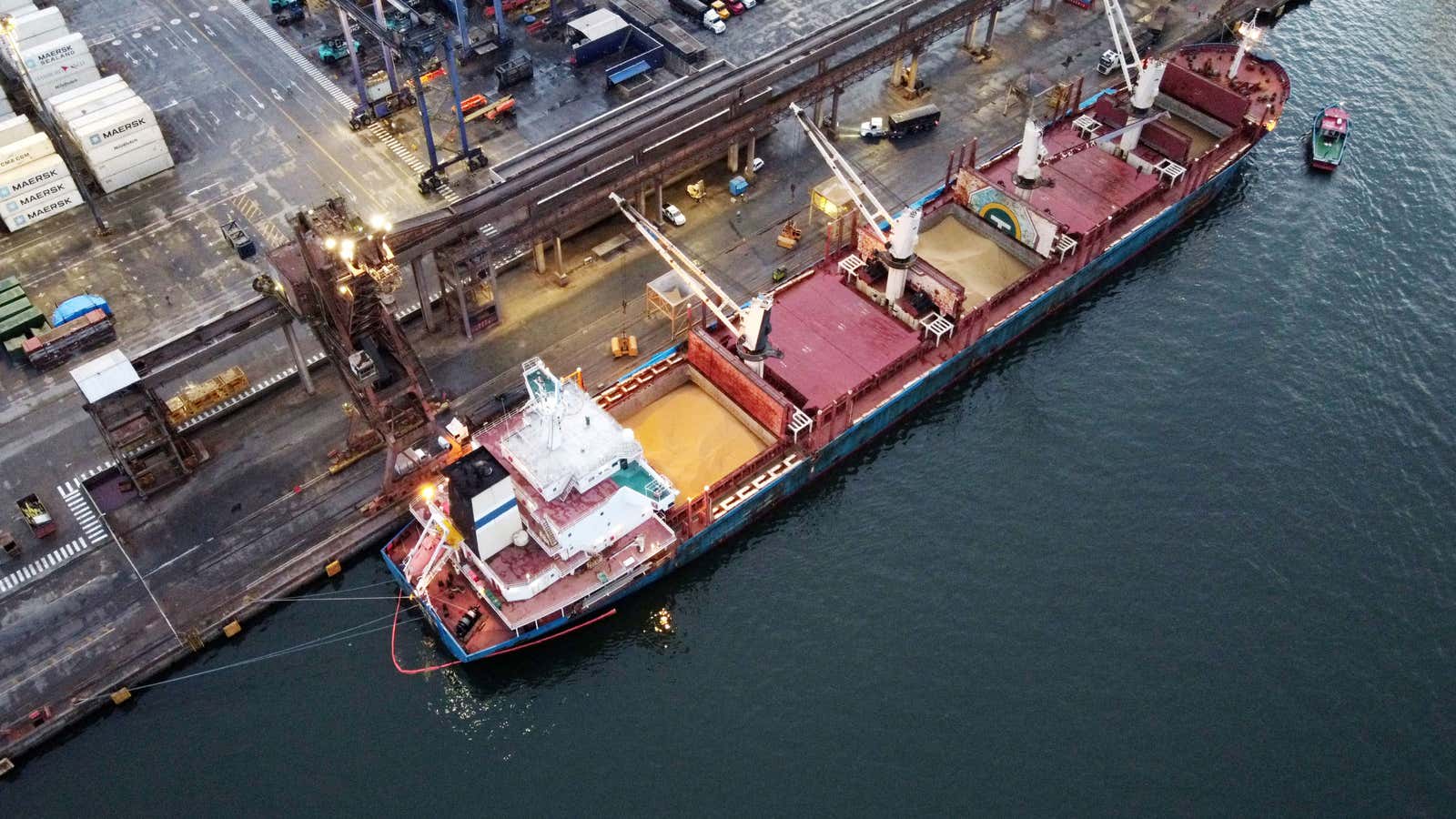With a shipping-container shortage and supply chain issues snarling global trade, some companies are changing how they ship their goods and ditching containers all together. Sugar and rice traders told Reuters, they’re reverting back to the methods of decades ago and booking dry bulk vessels to avoid the issues.
Dry bulk cargo ships carry unpackaged raw material in the ship’s holds instead of in containers. Sugar, coffee, rice, cotton, and cocoa are some agricultural products that could be transported via dry bulk vessels. Break-bulk cargo vessels can also carry products that are sacked, like sacked sugar and rice.
Rice is being shipped in super sacks or dry bulk because of delays
At US ports an increasing portion of rice is arriving in bulk rather than in containers, data released yesterday from the US Census bureau show. The imports rice in containers have fallen almost 20 percentage points by value, while bulk carriers with rice have reached their highest level since March 2015.
In Ft. Lauderdale, Florida workers at Port Everglades confirmed they are seeing more rice in bulk forms than in containers. The Port of Stockton in California, which only handles bulk cargo, is also seeing an increase in break-bulk ships. “Commodities that would normally be in containers are now coming to us,” said Kirk DeJesus, the port director in Stockton.

DeJesus explained goods packaged in flexible bulk containers called “Super Sacks” that would normally be shipped in containers are being delivered to the port as break bulk. “We’ve seen a 31% increase year-over-year in those types of commodities. This is going to be our biggest year ever.”
A spokesperson for V Rice International in Thailand stated that during the past year of the pandemic, the company has only loaded breakbulk vessels.
The portion of sugar shipped in containers is falling amid the supply chain issues
Sugar is more typically transported in bulk more than rice, but it has also seen an increase in bulk carriers the past few months. The proportion of containerized sugar arriving at US ports decreased by about 5 percentage points from August to September.
Paulo Roberto de Souza, Chief Executive of Alvean Sugar SL, the world’s largest sugar trader told Reuters that around 80% of refined sugar was sent on containers pre-pandemic. Now it’s around 60%.
Without an end in sight for container-shipping delays, the switch to bulk makes sense for companies trying to get back to business. But it’s unclear if to stay in business companies will return to containers or make more bulk shipping the new normal once container ports are flowing again.
